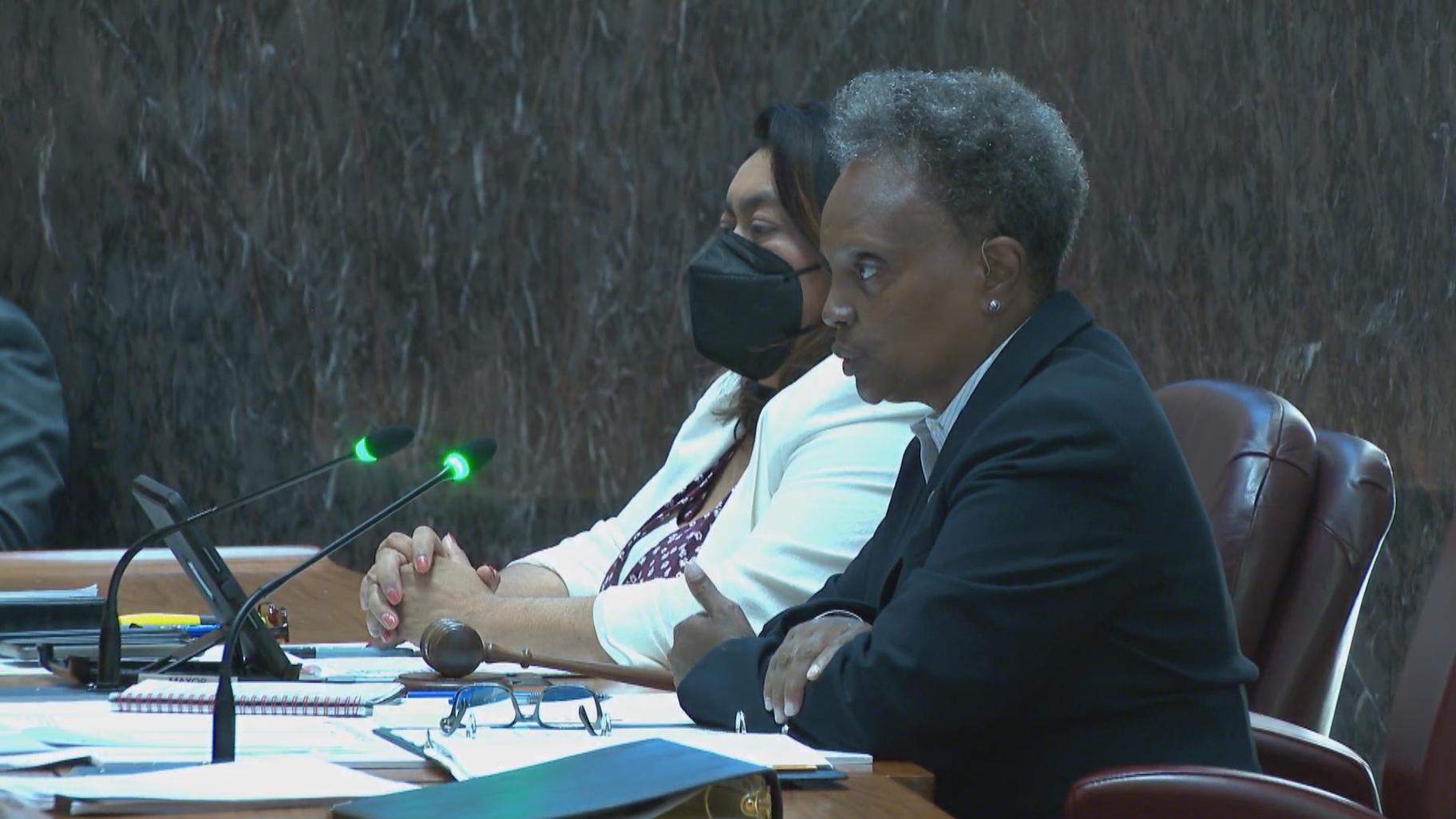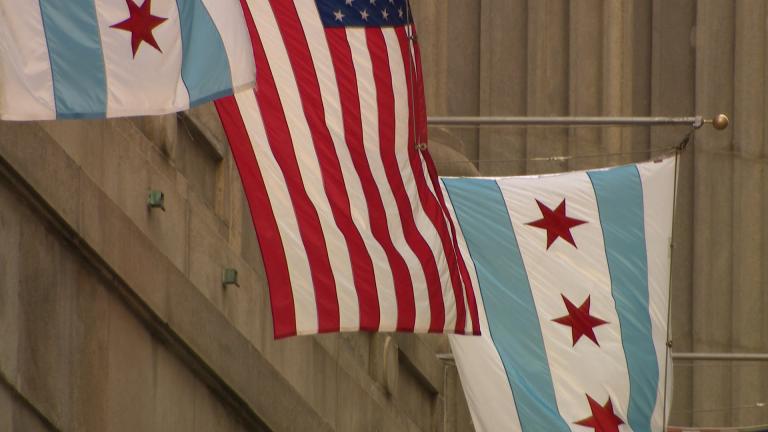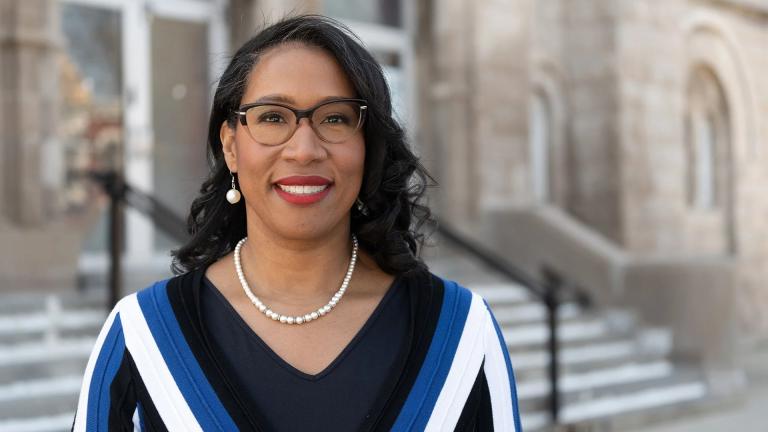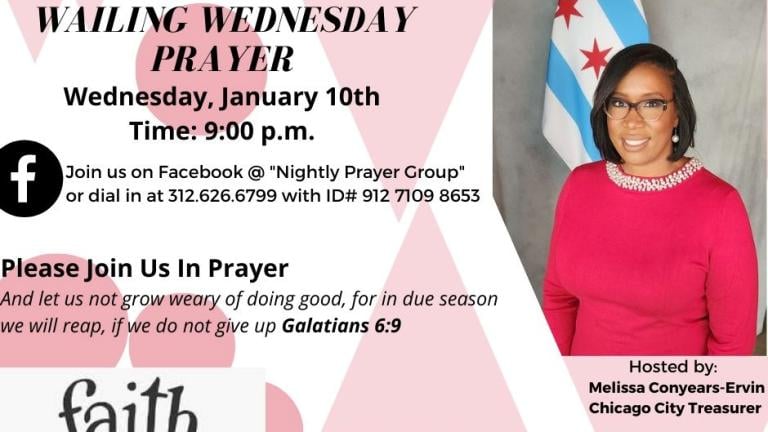 Mayor Lori Lightfoot is pictured at the July 20, 2022, Chicago City Council meeting. (WTTW News)
Mayor Lori Lightfoot is pictured at the July 20, 2022, Chicago City Council meeting. (WTTW News)
The Chicago City Council unanimously approved a major overhaul of Chicago’s Governmental Ethics Ordinance Wednesday after months of behind-the-scenes negotiations over the package designed to root out the corruption that has led to the conviction of 37 members of the Chicago City Council since 1969.
Authored by Ald. Michele Smith (43rd Ward), the chair of the City Council’s Ethics and Government Oversight Committee, and backed by the Chicago Board of Ethics, the package was significantly revised to win the support of Mayor Lori Lightfoot, who blocked the measure from advancing for several months.
The measure hikes the maximum fine for violating the city’s ethics ordinance from $5,000 to $20,000.
Changes demanded by Lightfoot made the ethics overhaul weaker than the original proposal, according to the Better Government Association, a civic watchdog.
The City Council’s unanimous vote on Wednesday marks the second major overhaul of the city’s ethics laws under Lightfoot, who campaigned on promises to end City Hall corruption.
The City Council voted 50-0 in July 2019 to overhaul the city’s ethics laws by giving the inspector general the authority to investigate alderpeople and committees by hiking the fine for violations from $2,000 to $5,000. That measure also banned members of the City Council from working as property tax attorneys — a provision that was aimed squarely at indicted Ald. Ed Burke (14th Ward).
But those changes were less far reaching than originally proposed by the Ethics Board, and Lightfoot promised more reforms were in the works. However, concerns about ethics fell nearly completely off the mayor’s agenda amid the continuing COVID-19 pandemic and a public safety crisis that sent violent crime to the highest levels in nearly 25 years.
Lightfoot on Monday defended the changes she pushed to the proposal, and said she disagreed the final version was weaker.
Lightfoot said her demand that the reform package include a provision that would have benefitted several of her allies who have found themselves in the crosshairs of the Chicago Board of Ethics would ensure “due process” for those facing sanctions.
“What the Board of Ethics does now is becomes judge and jury before they even give the target of the complaint an opportunity to respond,” Lightfoot said. “But for me, due process matters. And I want to make sure that the board is viewed with legitimacy, not as judge, jury and executioner before they even get the other facts from the person who's the target of the complaint.”
William Conlon, the chair of the Board of Ethics, said the board was “committed to enforcing the ordinance with vigor and integrity.”
The board’s processes are “straightforward” and “fair” and “offer due process,” Conlon said.
After the committee meeting, Conlon told WTTW News that Lightfoot’s remarks were “very unfortunate.”
While the board refers complaints that require a probe to the city’s inspector general, it can act in cases that do not require a “factual investigation” and where an ethics violation is apparent and based on publicly available records. The board’s rules require the elected official’s name be kept confidential throughout the process.
Once the board determines there is probable cause that a violation has occurred, it contacts the official and gives them an opportunity to rebut the board’s determination before a final decision is made and any fines levied.
That violates “due process,” Lightfoot said.
The Ethics Board has found probable cause that a number of Lightfoot’s allies on the Chicago City Council have violated the city’s ethics ordinance using the process.
The Ethics Board is now required to notify the elected official in writing at least 10 days before the Board of Ethics could find probable cause that they violated the law, giving them a chance to refute the allegation and avoid public embarrassment.
The board determined in June that there was probable cause that the ordinance had been violated in June in a case involving “campaign-related content in an official ward newsletter, emailed from a cityofchicago.org email address, contrary to clear board guidance on the improper mixing of political and official content in newsletters and websites that was sent to all city elected officials in January 2020.”
Ald. Derrick Curtis (18th Ward), a Lightfoot ally, sent an email on June 2 to residents of his Far South Side ward that included an advertisement for the mayor’s re-election kickoff event at the Starlight Restaurant on June 8. That newsletter included an image that invited 100 residents to reserve a spot at a “supporter breakfast” by contacting Curtis’ ward office on a first-come, first-served basis.
In addition, the measure expands the number of companies doing business with the city that would be limited to contributing $1,500 annually to include those doing business with all of the city’s sister agencies, including the Chicago Transit Authority, the Chicago Public Schools and Chicago Housing Authority.
The proposal directs the city’s Department of Assets, Information and Services to compile a list of contractors for the Chicago Housing Authority and the Public Building Commission, to allow Chicago elected officials to comply with the limits.
However, the revised measure does not expand the limit on campaign contributions to subcontractors with the city’s sister agencies, since there is no database of those firms.
The measure also expands the city’s rules against nepotism to prevent city officials or employees from taking any action that benefits their domestic partner or relatives and prohibit firms from hiring relatives of city officials to skirt the rules.
But those elected officials will not have to physically leave the City Council chambers or the virtual meeting when that item is discussed and voted on. Instead, the official will have to file details about the conflict of interest with the Chicago Board of Ethics within 24 hours. That information will be made public in a searchable format.
This provision’s removal marks the second time since 2019 the City Council has rejected that proposal, which has the support of the Chicago Board of Ethics.
The proposal bans former alderpeople who work as lobbyists from the floor of the Council Chambers. That provision appears directed at former Ald. Joe Moore (49th Ward) who works as a lobbyist and has been a frequent presence at meetings since his defeat in 2019.
Moore spent most of Wednesday’s meeting chatting with members of the City Council in the room behind the chambers — an area restricted to members of the public.
At the mayor’s request, three provisions were added to the revised measure that would appear to benefit two of the mayor’s allies who have found themselves in the crosshairs of the Chicago Board of Ethics.
While city law prohibits the use of city property for political purposes, the measure permits “incidental” use of the city seal in a video or photograph that has a disclaimer attached that it is not an official city of Chicago production.
In addition, the revised ordinance allows elected officials to host donation drives for charitable organizations by placing bins in their offices and city property.
The revised ordinance also requires independent contractors who work for members of the City Council to complete a statement of financial interest and undergo ethics training. A similar measure was defeated in 2017 after it caused an outcry.
The city’s law also clarifies the city’s rules on lobbying to exempt Chicagoans who urge their alderperson to support a measure with a nonprofit advocacy organization.
In other action, the City Council unanimously passed a resolution demanding that Lightfoot’s administration release the full investigation completed by Chicago’s inspector general into the botched implosion of a smokestack in Little Village.
The resolution calls on Corporation Counsel Celia Meza to release the full report into the implosion. However, the nonbinding resolution cannot force Meza, appointed by Lightfoot, to act.
The City Council also voted to pay approximately $11.2 million to settle three lawsuits claiming Chicago police officers committed a wide range of misconduct.
The city will pay $4.25 million to the family of Maurice Granton Jr., 24, who was shot in the back and died in 2018 after being chased by Officer Sheldon Thrasher. The Chicago Police Board is considering Chicago Police Supt. David Brown’s recommendation that Thrasher be fired.
The largest settlement — $6.75 million — would go to Norman McIntosh, who spent more than 15 years in prison for a 2001 murder before being exonerated.
Contact Heather Cherone: @HeatherCherone | (773) 569-1863 | [email protected]





